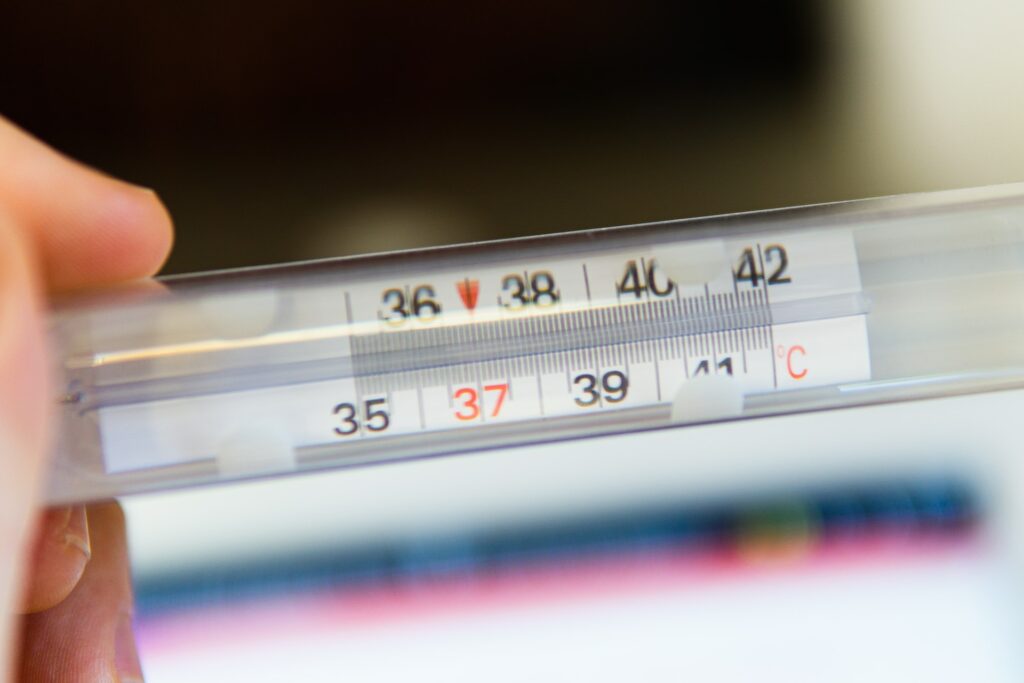


Why do I get hot when I sleep? Is this a question that you find yourself asking? Overheating while sleeping is a common issue that can disrupt your sleep and leave you feeling tired and irritable the next day.
In this article, we’ll explore the causes of this problem and provide practical solutions to help you cool down at night. Improve your sleep quality and overall well-being by understanding and addressing the issue of overheating while sleeping.
To understand the factors that impact your body temperature during sleep, it’s important to consider various factors that can cause fluctuations in your body’s heat regulation. One common issue is feeling hot when you sleep. Many people experience this and find it uncomfortable.
There are a few reasons why you may get so hot during sleep. Firstly, the temperature of your sleep environment plays a role. If your bedroom is warm or humid, it can make you sleep hot. Additionally, the type of bedding and sleepwear you use can affect your body temperature. Thick pajamas and heavy bedding can trap heat and make you feel hot.
Considering these factors and practicing good sleep hygiene can help regulate your body temperature and improve your sleep quality.
Your sleep environment plays a crucial role in regulating your body temperature and preventing overheating while sleeping. Here are three key factors to consider for maintaining a sleep environment that helps you sleep cooler and improve sleep quality:
Hot flashes, often associated with menopause, can indeed cause sudden and intense feelings of heat, leading to sweating and discomfort. These hot flashes can occur during the day, but they can also disrupt sleep and contribute to overheating at night.
Night sweats, a common symptom of various medical conditions, can also cause excessive sweating and increase body temperature during sleep.
Additionally, certain sleep disorders, such as sleep apnea and insomnia, can affect body temperature regulation and disrupt sleep quality.
It’s important to address these medical conditions and seek appropriate treatment to improve sleep quality and reduce overheating while sleeping.
When experiencing overheating while sleeping, it’s important to understand how the body responds to fever and overheating. Here are three key points to consider:
Understanding how your body responds to fever and overheating can help you address the issue of feeling hot when you sleep. By managing your body heat effectively, you can improve your sleep quality and avoid the discomfort of poor sleep caused by overheating.

Understanding the role of body composition and individual differences is crucial in regulating temperature while sleeping. The way your body is composed, including factors like lean muscle mass, body fat percentage, and metabolism, can affect how you perceive and regulate temperature.
People with more lean muscle mass may have a higher metabolism, leading to a higher body temperature. On the other hand, body fat acts as insulation, keeping you warmer.
Additionally, individual factors such as age, gender, and overall heat sensitivity can influence how your body responds to overheating while sleeping.
Considering these factors, it’s important to find personalized solutions for managing temperature, such as adjusting bedding, sleepwear, and sleep environment, to ensure a comfortable and restful sleep.
To better understand the causes of feeling hot when sleeping, it’s important to consider the factors that contribute to fluctuations in body temperature. Here are some reasons you may feel too hot at night:
These factors can disrupt your sleep and make you uncomfortable.
It’s recommended to maintain a bedroom temperature of 65-68 degrees Fahrenheit to optimize your sleep. Using a fan or air conditioning, avoiding late exercise and caffeine, and seeking medical advice if the issue persists are also helpful strategies to cool down at night.
To effectively address the issue of feeling hot when sleeping, there are several practical measures you can take to cool down at night.
If the issue persists, it may be helpful to seek medical advice or consider sleep medicine.
Lastly, during hot weather, wearing lightweight and breathable sleepwear can help keep you cool throughout the night.
In conclusion, overheating while sleeping is a common issue that can disrupt your sleep and leave you feeling tired and irritable. Understanding the causes, such as mattress type, hormones, health conditions, sleep environment, and diet and hydration, is key to finding effective solutions.
By implementing practical tips like using a fan or air conditioning, taking a warm shower before bed, and avoiding caffeine and alcohol, you can cool down at night and enjoy better sleep and improved overall well-being.
Cleveland Clinic (2021) What’s the Best Temperature for Sleep? [online]. Available at: https://health.clevelandclinic.org/what-is-the-ideal-sleeping-temperature-for-my-bedroom/